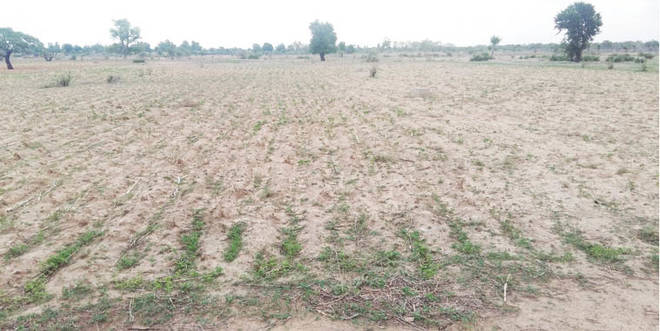Farmers’ challenges in ravaged North-East
Herders and farmers conflicts have remained the most predominately resource-use conflict in North-eastern Nigeria particularly in Taraba State. The necessity to provide food, of crops and animal origin, as well as raw materials for industry and export in order to meet ever-growing demands has led to extensive use of land. The competition between these two […]


Herders and farmers conflicts have remained the most predominately resource-use conflict in North-eastern Nigeria particularly in Taraba State.
The necessity to provide food, of crops and animal origin, as well as raw materials for industry and export in order to meet ever-growing demands has led to extensive use of land.
The competition between these two agricultural land users has oftentimes turned into seriously concealed and unconcealed manifestation of war and social conflicts in many parts of Taraba State. The conflicts have demonstrated high potential in worsening of the insecurity and food crisis especially in rural communities where most of the conflicts are localized.
This report describes the traditional relationship between herders and farmers in the continuous resource conflicts witnessed in Taraba State and how it affects the security of those living in the local communities. It indicates that there is the need to identify the causes, and the solution of the critical issues that are at the roots of the conflict.
Over the years, Nigeria has been known as the highest breeder of cattle as a source of meat and skin. The increase in the animal production has resulted in conflicts in various farming communities in the country.
The conflicts in most parts of the country, especially the herders and farmers clashes are largely uncalled for. The major economic effects of the conflict are reduction in output and income of farmers/nomads, loss of produce in storage, displacement of farmers, scarcity of agricultural produce, loss of homes and properties and damage to infrastructure.
The conflict threatens the lifetime resources of people particularly farming communities due to high dependence on natural resources for survival. There are livelihood issues in herdsmen-farmers conflict among farming communities, which include blockage of waterholes by farmers and fishermen.
The prevalence of conflicts between herders and farmers is not peculiar to Nigeria. This has been largely attributed to population growth, urbanization, and environmental degradation, which have all intensified the competition for land resources thus stoking in conflicts.
Being the main traditional agrarian groups, cattle herders and farmers make significant contributions to food security and nutritional needs of the nation. This has led to several agitations in the past, notably by the Miyetti Allah Cattle Breeders Association of Nigeria (MACBAN), which advocates for the social, political, economic, and cultural integration of Fulani in communities where they settle.
The major source of tensions between pastoralists and farmers is basically economic, with land related issues accounting for the majority of the conflicts.
Undoubtedly, the loss of human lives, land, animals, plants, and crops has many security, social, political, and economic implications, including an impact on livestock production in Nigeria.
Hyellamada Nelson, is a 300 level student of Mass Communication Department, University of Maiduguri.
